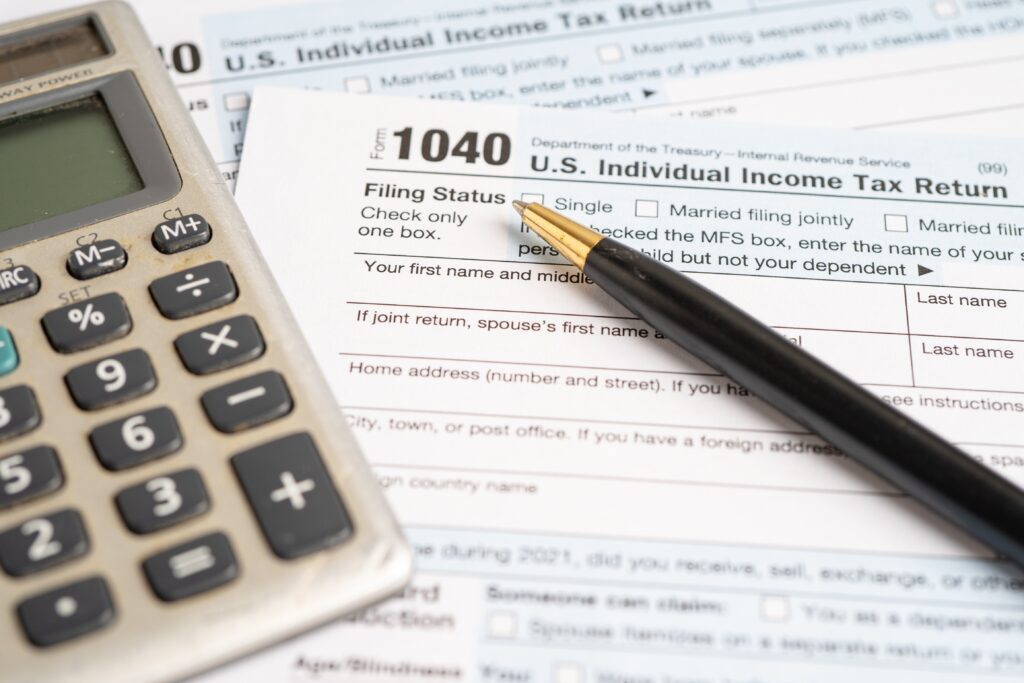Tax season is here, and there’s no better time to tackle that stack of old tax documents you’ve been holding onto. But how long do you actually need to keep them, and what’s the safest way to dispose of what’s no longer needed? That’s where things can get tricky, but it doesn’t have to be stressful.
At Foresight Financial CPAs, we’re pros at simplifying tax compliance for everyone from startups to large corporations, so you can focus on what really matters. From knowing the right retention timelines to ensuring secure disposal, we make cleaning up those tax records a seamless process. Have questions or just not sure where to start? Contact Foresight Financial CPAs and take the smart, stress-free approach to managing your records.
Why Proper Disposal of Old Tax Records Matters
There’s something deeply satisfying about decluttering, and getting rid of old tax records is no exception. But it’s not just about freeing up space in your filing cabinet or clearing away that stack of papers on your desk. Proper disposal of old tax documents is crucial for keeping your financial information safe and staying on the right side of legal retention rules. Tossing out records without a second thought can leave sensitive information vulnerable, while holding onto them longer than necessary could just be adding clutter to your life. The key is knowing what to keep, what to toss, and how to dispose of it securely.
Why does all this matter? Here are some big reasons to handle those old tax records the right way:
- Protect your privacy by ensuring documents with personal details (like Social Security numbers or financial accounts) don’t fall into the wrong hands.
- Prevent identity theft, which can happen when sensitive paperwork is carelessly discarded.
- Stay compliant with retention guidelines set by the IRS and avoid any issues during an audit.
- Free up space for more current and important documents, reducing unnecessary clutter.
- Keep peace of mind, knowing you’ve cleaned up your financial past in an organized, secure way.
Taking the time to properly dispose of tax records isn’t just a chore; it’s a smart way to take ownership of your finances. And if you’re unsure about what to keep or get rid of, the experts at About Us | Foresight Financial CPAs are here to help guide you through the process.
How Long Should You Really Keep Tax Records?
Keeping tax records doesn’t have to be complicated, and the general rule is pretty straightforward: hang onto them for three years. That aligns with the IRS’s statute of limitations for most tax-related issues, like audits or questions. But here’s the catch—not every state follows the same playbook, so it’s a good idea to check your local requirements to avoid any hiccups. And sometimes, keeping records longer just makes sense. Certain financial activities or unique situations call for extended retention, and a little extra diligence now can save you big headaches later.
Here’s a quick rundown of when you should keep your records longer than three years:
- Asset sales like property or investments, where records should be kept as long as needed to prove cost basis and any associated gains or losses.
- Unclaimed deductions for bad debts or worthless securities that need documentation for seven years.
- Business expenses if you’re self-employed, as retaining records supports your claims and deductions for up to six years.
- Multiple income streams, like rental properties or side hustles, may complicate your returns and warrant keeping records longer.
- Audits or errors on past returns, where you’ll want to hang onto all relevant documents until they’re resolved.
Knowing these timelines gives you the clarity to sort through your tax documents and make confident decisions about what to keep and what to shred. It’s all about keeping what you need and letting go of the rest, so you can avoid unnecessary clutter and stress. With a better understanding of retention guidelines, you’ll feel much more in control of your financial organization.
Understanding State Tax Record Requirements
Florida does not impose a state income tax, simplifying tax filing requirements for many residents. However, state-specific rules still apply for certain financial records, especially for businesses and individuals subject to other state tax obligations, such as sales tax or employment tax. Generally, it’s recommended to retain tax-related documents for at least three years, aligning with the IRS’s federal guidelines.
For Florida business owners, maintaining records related to state sales tax for a minimum of three years after filing is crucial in case of a state audit. Additionally, keeping documentation for longer periods is wise for situations involving asset purchases, business records, or unresolved tax disputes. Knowing Florida’s tax record requirements can help ensure compliance and avoid unexpected complications.
Safe and Secure Methods for Disposing of Tax Documents
When it’s time to dispose of old tax records, security should be your top priority. Florida residents should take extra precautions to protect sensitive information, such as Social Security numbers, financial account details, and any other personal data. Shredding is one of the safest ways to destroy paper records, ensuring that no one can access your private information. For digital files, use reputable software to permanently delete stored data or physically destroy old storage devices. Many Florida cities also host document shredding events or offer secure drop-off locations for proper disposal. Safeguarding your personal and financial information during the disposal process protects you from identity theft and other potential security risks.
What Tax Records Can You Typically Discard?
Not all tax records need to live in your filing cabinet forever. Once you’ve passed the retention timeline, like the IRS’s general three-year rule or any state-specific requirements, it’s usually safe to part ways with certain documents. Think old receipts for claims you no longer need, tax returns that are beyond their usefulness, or paperwork tied to financial situations that no longer apply to your current life. Clearing out these unnecessary files not only frees up space but also makes it easier to focus on the records that actually matter. Plus, shredding those no-longer-needed documents adds an extra layer of security for your personal information.
Have Questions About Your Specific Situation? Contact Us!
The team at Foresight Financial CPAs is here to take the guesswork out of what to keep and what to toss, so you can stay organized and confident come tax time. Whether you're navigating complex financial situations, uncertain about retention guidelines, or just need clarity on what documents you'll need, we've got your back. When in doubt, holding onto your records is smart, but reaching out to Foresight Financial is even smarter. Contact us today with any questions about your unique situation, and we’ll help you stay on top of your tax and CPA needs with ease.




